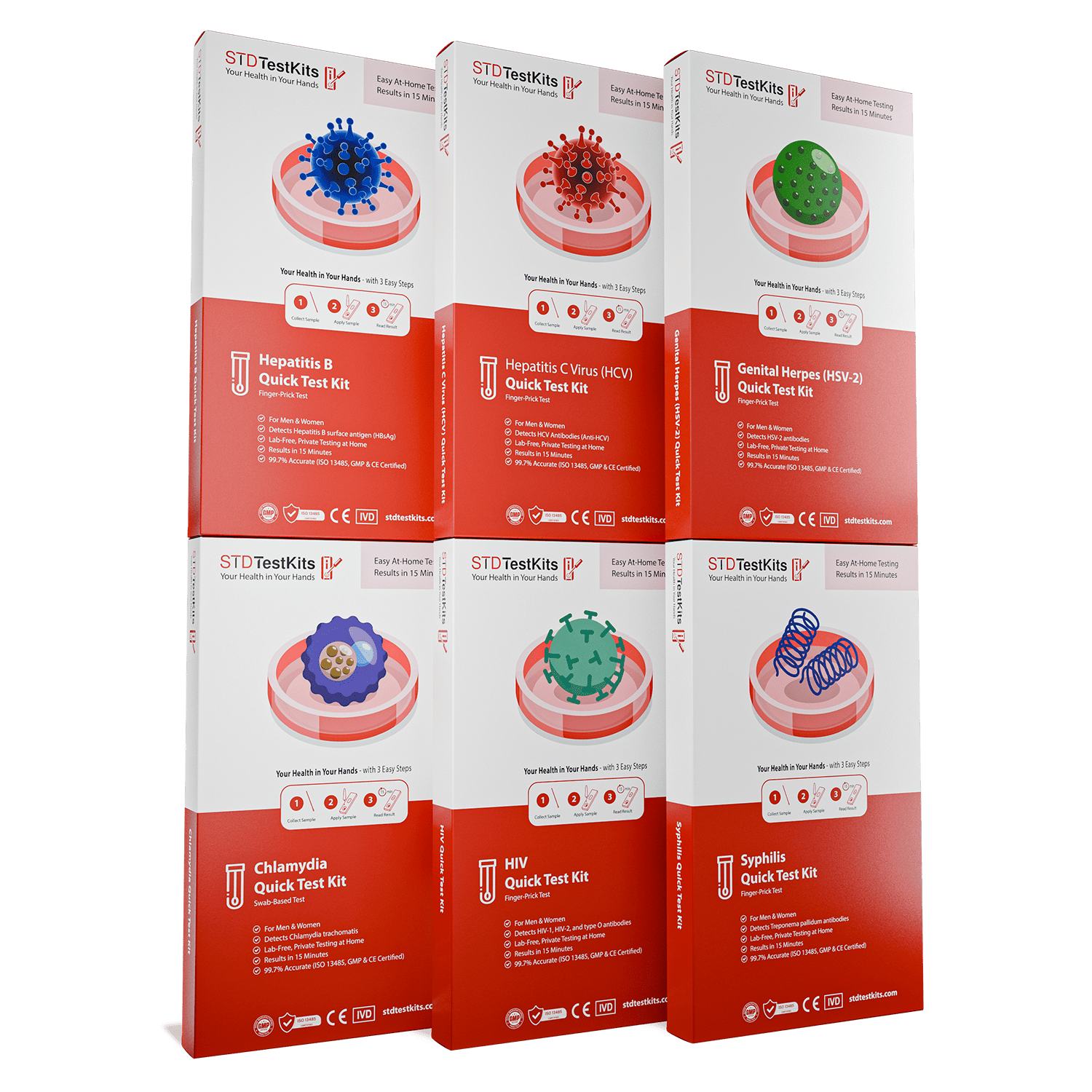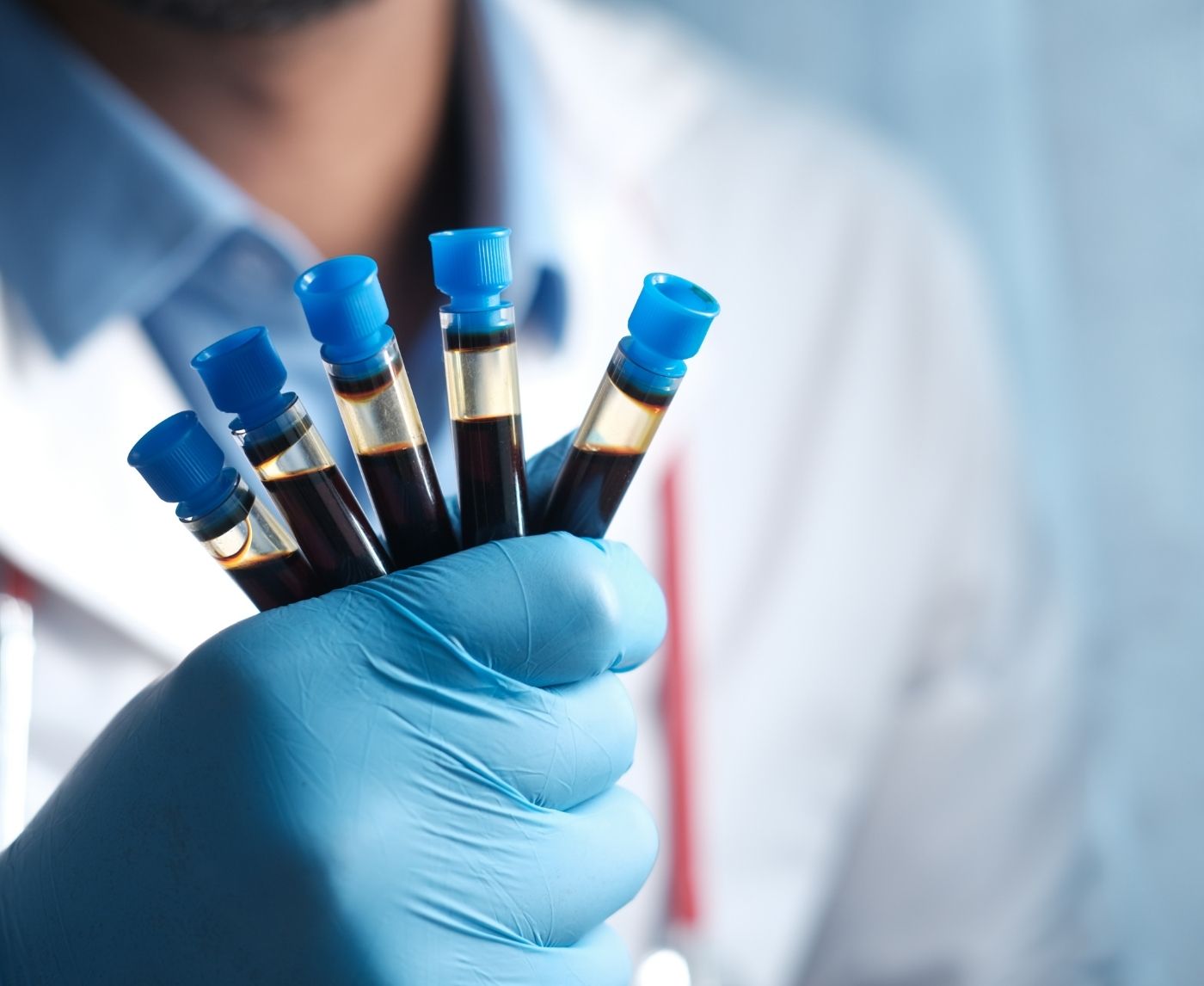How Soon After Sex Can You Test for HSV-1 or HSV-2?
Quick Answer: It’s safest to wait to have sex until your STD results are in. Many STDs can be transmitted even without symptoms, especially during incubation or shedding phases. Barrier methods help but don’t eliminate risk.
Why This Question Comes Up More Than You’d Think
For a lot of people, waiting for STD test results feels like emotional purgatory, anxiety is high, hormones are confusing, and sometimes the temptation to have sex anyway feels stronger than the fear of what might be wrong. It's especially common if you're already in a relationship or trying to keep things casual-but-kind with a new partner. But here's the reality: some STDs can still spread before symptoms show or even if you feel completely fine.
Take herpes, for example. According to CDC data, most people who have it don't know they do, and yet, viral shedding can still occur, which means you can pass it on without an active outbreak. Chlamydia and gonorrhea can both be present without obvious symptoms, especially in people with vaginas.
One Reddit user in r/sex recounted how she “felt fine,” only to test positive for chlamydia two days later. Her partner never developed symptoms, but tested positive too. “We used condoms, but I still feel guilty,” she wrote. Guilt shouldn’t fuel your decisions, but information should.

People are also reading: Can You Get Genital Herpes on Your Face? The Truth About HSV Types
Let’s Talk Contagiousness, Even Without Symptoms
Not all infections behave the same, but many can be transmitted before symptoms appear, or even if they never appear at all. This is the dangerous myth of feeling “clean” if you feel okay. Here's what happens in real-world biology:
Figure 1. Many common STDs can be spread before symptoms appear or during non-visible phases. Waiting until results come in helps protect both partners.
If your STD test was taken too early, you might still test negative even if you're infected. That’s because of what’s called the window period, the time between exposure and when the infection becomes detectable.
Let’s Say You Do Have Sex, How Much Does Protection Help?
Condoms and dental dams do help. They dramatically reduce the risk of many STDs. But they’re not foolproof. Skin-to-skin infections like HPV, herpes, and syphilis can spread through contact with areas that condoms don’t cover. And for people engaging in oral sex, dental dams are rarely used, even though infections like gonorrhea and herpes can be spread that way.
One 2022 study in the journal Sexually Transmitted Infections found that even among couples who used condoms “most of the time,” infection rates for herpes remained consistent with population averages, because of shedding and skin contact. That’s not a reason to stop using protection, it’s a reason to double down on timing and transparency.
If you're worried your partner won't be open to using protection while you're waiting on results, this may be a good moment to pause and ask why. Healthy sex includes boundaries, even temporary ones.
Don’t wait and wonder, get answers from home. You can order a confidential Combo STD Home Test Kit that checks for the most common infections and gives fast results. Peace of mind is a few clicks away.
How Long Should You Wait Before Resuming Sex?
There’s no magic number that fits every situation, but there are guidelines you can use based on what test you took, what infection you’re worried about, and when exposure might have occurred. Here’s the general rule: wait until results are back and the window period has passed before resuming sexual activity, especially unprotected sex.
Here’s a narrative-based way to think through your timeline:
If it’s been:
Figure 2. Use this window-based timeline to decide when it’s safest to resume sex after a potential STD exposure.
This isn’t just about lab science, it’s also about peace of mind. One reader, Julian, 27, shared how he “waited ten days after a one-night stand to get tested, then hooked up again before results came in.” A week later, his partner tested positive for gonorrhea. Julian? Negative, but stressed and scrambling for a retest.
“Next time, I’ll just wait,” he said. “Not worth the panic.”
That’s the core truth here: waiting isn’t about punishment or shame, it’s about clarity and care.
How to Talk to Your Partner While You're Still Waiting
This part can feel scarier than the test itself. But if you’re seeing someone regularly, or even just casually, you owe them some real talk. Try framing it like this:
“Hey, I just got tested after [insert reason or exposure], and I’m waiting on results. I’d feel better if we hit pause on sex until they come back. I’m not saying I have anything, I just want to be sure I don’t put either of us at risk.”
This kind of honesty might feel awkward, but it's also empowering. People who respond with empathy are the kind you want to keep sleeping with. And if someone pressures you to “just go for it,” that’s a red flag, not a sexy one.
Whether it’s a bump or a question mark, you deserve to know.
What If Your Partner Doesn’t Want to Wait?
This can be the emotional minefield. One partner wants to wait; the other says, “We’re probably fine.” But here's what’s real: your health is not up for debate. Waiting for test results isn’t mistrust, it’s maturity. You’re taking care of both people, and that’s sexy as hell.
Here’s how to navigate pushback without turning it into a fight:
“If the roles were reversed, I’d want to know. I’m not accusing you of anything, I just want us both to feel safe.”
Can You Still Date While Waiting for STD Results?
Yes, but it depends on how you define dating. If you’re going out, flirting, or making future plans, there’s no harm in connecting with someone new. If you’re looking to jump into bed while your results are pending, that’s when it gets trickier.
For many people, dating is part of staying emotionally grounded. But so is honesty. You don’t have to disclose every detail of your testing history on the first date, but if sex becomes a real possibility, it’s time to be transparent. This is especially true if you’re waiting on results after a known exposure or a recent risk event.
In polyamorous and queer communities, this kind of pre-intimacy disclosure is normalized, sometimes even appreciated. If the person you’re seeing balks at your honesty, that says more about them than it does about you.
Consider adding this to your profile or pre-date text: “Just got tested, waiting on results before hooking up. Hope that’s cool.”
Simple. Direct. Responsible. And still totally hot.
Hookups Before Results: Etiquette, Boundaries, and Real Talk
But if you’re one of those people who chooses to hook up during this time, rest assured that you’re not alone in this either. In fact, a study that appeared in JAMA Network Open in 2022 indicated that nearly 38% of young adults had sex awaiting STD test results.
If that’s your reality, here are some ground rules that reduce harm:
- Disclose: Let your partner know you’re waiting on results. Silence protects no one.
- Use barriers: Condoms, dental dams, and gloves reduce risk, even if not 100%.
- Skip high-risk acts: Avoid anal, oral, or genital contact with potential lesions or sores.
- No assumptions: Don’t rely on “they look clean” or “I feel fine.” That’s how STDs spread silently.
Hookup culture doesn’t have to be reckless. It can be respectful. Clear communication doesn’t ruin the mood, it sets it. Remember: saying “I’m waiting on results” doesn’t make you a buzzkill. It makes you a better partner.

People are also reading: Exposed to HIV? Here’s How PEP Can Stop It Cold
The Mental Spiral While Waiting Is Real, Here’s How to Cope
There’s no lie here: waiting sucks. You start Googling every itch, spiral over every text your partner hasn’t replied to, and maybe even check your email 40 times a day hoping for “Your lab results are in.” You are not alone in this.
Anxiety during the waiting period is common, especially if the test was triggered by a scare (like a condom breaking) or a partner’s disclosure. Some people even develop psychosomatic symptoms, burning, itching, or rashes, simply from stress. That doesn’t mean the fear isn’t valid. It just means your body’s on high alert.
Ways to stay grounded while waiting for results:
- Get off symptom forums: They often trigger more panic than clarity.
- Do a concrete task: Clean something. Walk. Cook. Do anything with an end result.
- Plan your next move: Whether positive or negative, knowing your options helps you feel in control.
You deserve answers, not panic spirals. Our at-home STD kits offer fast, discreet results and peace of mind, on your timeline.
FAQs
1. Can you have sex while waiting for STD results?
Technically, yes. But should you? Probably not. Even without symptoms, infections like chlamydia or herpes can still be contagious. Think of it like driving before your headlights come on, you might not crash, but why take the risk when waiting a few days gives you clarity?
2. I already hooked up while waiting. Did I mess up?
You're human. It happens. Don’t spiral, just be honest with your partner (if possible), use protection going forward, and consider retesting if your exposure was recent. One slip-up doesn’t mean you’re reckless; it means you’re learning. That’s growth.
3. Are condoms enough while I’m waiting for results?
Condoms are very effective, particularly in the prevention of sexually transmitted diseases that are transmitted through bodily fluids such as gonorrhea and HIV. However, they’re not foolproof. Diseases such as herpes can be transmitted by skin contact. Condoms are like raincoats; effective, but if you walk in a puddle, rain will still splash on your feet.
4. What if I feel totally fine, does that mean I’m clean?
Not necessarily. Many STDs don’t show symptoms at all, especially in early stages. Chlamydia can sit quietly for weeks. Syphilis might give you a sore you mistake for a razor nick. Don’t let silence fool you. That’s why testing (and patience) matters.
5. Is it safe to kiss someone while waiting for STD results?
Mostly, yes, but with caveats. If you're worried about oral herpes (cold sores), HSV-1 can spread through kissing, even without an active sore. If you’ve got a tingle or raw patch near your lip, skip the smooch. Otherwise, pucker up, but be mindful.
6. How long should I wait before having sex after getting tested?
Ideally, wait until your results are back and enough time has passed since exposure, usually 14+ days for common infections. If you test too early, you might get a false negative and falsely relax. When in doubt, wait it out.
7. My partner doesn’t want to wait, what should I say?
Try this: “It’s not about suspicion, it’s about being sure. I care about your health and mine.” If they respect you, they’ll respect that. If they don’t? That’s your answer. Consent isn’t just about yes or no, it’s about timing, too.
8. Can I get an STD from oral sex while waiting for results?
Yep. People underestimate oral sex, but it’s a legit transmission route for gonorrhea, syphilis, and herpes. If you're going down while waiting on results, dental dams and condoms can help, but nothing’s as safe as waiting.
9. Can I trust a negative result if I tested after exposure?
If you tested within a few days of a risk event, you might be in the "window period", when the infection is too new to show up on a test. That’s why most clinics recommend waiting 7–14 days post-exposure. Then test. Then chill.
10. How long do results actually take?
Rapid at-home tests give results in minutes. Mail-in kits take a few business days. Clinics can range from same-day to a full week depending on the test type. If you're refreshing your inbox like it owes you money, you’re not alone.
You Deserve Answers, Not Assumptions
Waiting for STD results can feel like a limbo no one talks about. You’re not diagnosed, not cleared, and stuck in a weird emotional and physical pause. But here’s what you can control: your choices. Whether you choose to wait or to communicate and take precautions, the most important thing is that you act with awareness, not fear.
Take back control of your sexual health. Try an FDA-approved STD Test Kit, it’s quick, confidential, and lets you make informed choices faster.
How We Sourced This Article: We combined current guidance from leading medical organizations with peer-reviewed research and lived-experience reporting to make this guide practical, compassionate, and accurate. In total, around fifteen references informed the writing; below, we’ve highlighted some of the most relevant and reader-friendly sources.
Sources
1. Getting Tested for STIs | CDC
2. Get Tested for STIs | American Sexual Health Association
3. STD Symptoms and Testing Timeline | Medical News Today
4. Is There One STD Test That Can Detect Everything? | Verywell Health
5. Sexually Transmitted Infections: Updated Guidelines from the CDC | American Family Physician
About the Author
Dr. F. David, MD is a board-certified infectious disease specialist who works on preventing, diagnosing, and treating STIs. He combines clinical accuracy with a straightforward, sex-positive attitude and is dedicated to making his work available to more people, both in cities and in remote areas.
Reviewed by: L. Tanaka, MPH | Last medically reviewed: November 2025
This article is for informational purposes and does not replace medical advice.






